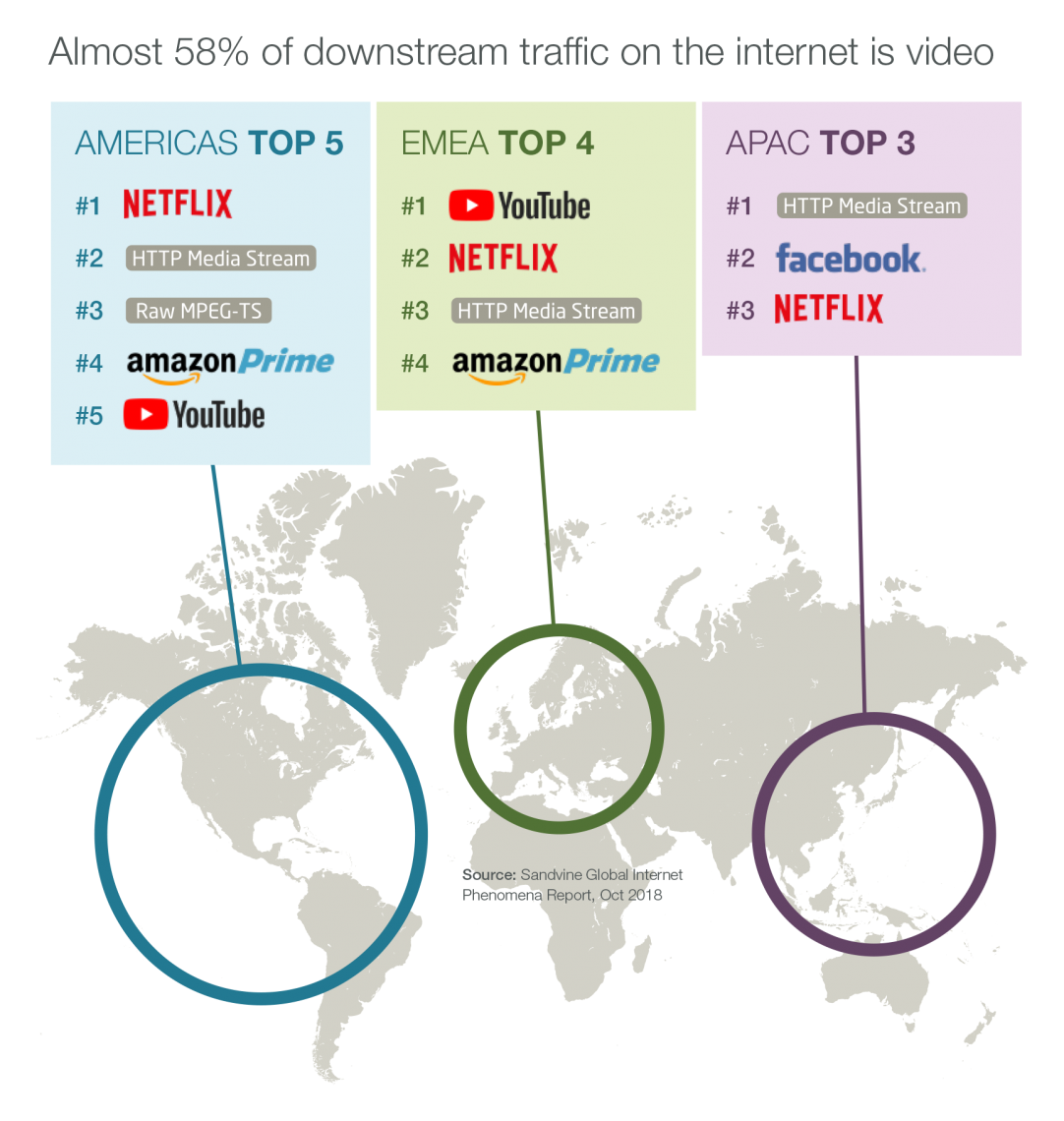Why it matters: Social distancing and working from home are important measures in slowing the spread of the coronavirus, but that also means there will be additional strain on telecom companies' networks. The EU is asking streaming companies and users to reduce bandwidth usage as much as possible to prevent congestion.
With more countries going into a state of emergency and urging everyone to work from home, internet bandwidth usage is going to be used a lot more than ever before. Even Conan O'Brien's team is working from home to get the show back on air by the end of this month, and Microsoft is seeing a surge in the number of Teams users thanks to more people studying and working remotely.
Many more people will likely flood the backbones of the internet with traffic from streaming services such as Netflix, Disney+, Amazon Prime Video and YouTube, so the EU has asked these providers to take immediate measures and limit their bandwidth usage. To that end, EU Commissioner Thierry Breton says he has personally asked Netflix CEO Reed Hastings via phone to switch all accounts to standard definition when high definition isn't necessary, such as during peak traffic hours.

Breton is also asking users to be more mindful of their data consumption as broadband providers aren't really equipped to deal with more than the natural evening surges in overall internet traffic. This makes perfect sense as many are now holding interviews, work collaboration, meetings, and school classes online, and it's no secret that video account for a significant chunk of overall internet traffic.
Italy and Spain have seen rises in residential data traffic of almost 75 percent after the lockdown measures went into effect, and telecom companies are currently in talks to find solutions. Vodafone, which is the world's second largest mobile operator, has seen a similar situation in Germany and the UK, noting that peak usage can now be observed between 12 PM and 9 PM instead of between 6 PM and 8 PM like it was in the past.
For its part, Netflix has confirmed to Engadget that it will reduce the video bitrate for European users by around 25 percent for the next 30 days. While this may seem significant, it's unlikely that most people will notice the difference, and it's a small price to pay to prevent network congestion.
